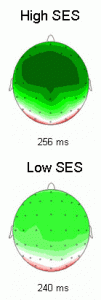Although I did not make a substantial number of posts in 2013, the traffic to my site remained relatively vigorous. Throughout 2013 my blog had 24,007 hits from 21,042 unique visitors, accounting for nearly 30,000 page views. I had visitors from every state in the US and 158 nations around the world. Visitors from the United States accounted for the vast majority of those hits, but the UK, Canada, Australia, India, China, and Germany also brought in large contingents.
Of my posts published in 2013, none made it to this year’s top ten list: five were from 2010, four were published in 2011, and one was from 2012. This year the top ranked article (The Moral Instinct) was a 2010 review of a very popular 2008 New York Time’s article by Steven Pinker. This perennially popular piece ranked 5th last year, 4th in 2011 and 3rd in 2010. Its bounce to the top this year is more of a testament to Pinker and the popularity of his piece that explores the universality of morals. In that piece I wrote:
Pinker delves into the neurological factors associated with morality and the evolutionary evidence and arguments for an instinctual morality. He reviews several important studies that provide evidence for these hypotheses. But, he argues that morality is more than an inheritance – it is larger than that. It is contextually driven. He notes: “At the very least, the science tells us that even when our adversaries’ agenda is most baffling, they may not be amoral psychopaths but in the throes of a moral mind-set that appears to them to be every bit as mandatory and universal as ours does to us. Of course, some adversaries really are psychopaths, and others are so poisoned by a punitive moralization that they are beyond the pale of reason. ” He further contends “But in any conflict in which a meeting of the minds is not completely hopeless, a recognition that the other guy is acting from moral rather than venal reasons can be a first patch of common ground.
This article may have also remained popular because of its relevance with regard to the state of affairs in today’s political arena and the application of Jonathon Haidt’s increasingly popular work on the Moral Foundations Theory.
The 2013 number two ranked piece Nonmoral Nature: It is what it is, is a review of one of Stephen Jay Gould’s most famous articles where he argued that there is no evidence of morality in nature, that in fact “nature as it plays out evolution’s dance, is entirely devoid of anything pertaining to morality or evil. We anthropomorphize when we apply these concepts. Even to suggest that nature is cruel is anthropomorphizing. Any true and deep look at the struggle for life that constantly dances in our midst can scarcely lead to any other conclusion but that nature is brutal, harsh, and nonmoral” (Gould). Historically this has been a controversial topic and remains so in certain circles today. This piece has remained popular over the years – ranking 4th last year and 2nd in 2011 and 2010.

Brainwaves and Other Brain Measures – the 3rd ranking post this year ranked 2nd last year and 1st in 2011. This very popular piece takes a pragmatic, comparative, and colorful look at the various ways of measuring brain activity. My 2012 article Happiness as Measured by GDP: Really? is finally getting some attention. Although it ranked 10th last year, it has climbed into the number four slot this year. I contend that this is perhaps one of the most important articles I have written.

My critical article on the widely used Implicit Associations Test ranked 5th this year, 6th in 2012, and 4th in 2011. Last year’s number one piece on Conspicuous Consumption and the Peacock’s Tail is one of my favorite pieces. It addresses our inherent drive to advance one’s social standing while actually going nowhere on the hedonic treadmill. It delves into the environmental costs of buying into the illusion of consumer materialism and its biological origins (the signaling instinct much like that of the Peacock’s tail).
I am excited to report that Poverty is a Neurotoxin is also finally gaining some traction. Published in 2011 it has never achieved a top ranking; although, in my humble opinion, it is no less important. Rounding out the top ten of 2013, my Hedgehog versus the Fox mindset piece ranked 8th this year, 9th last year, and 10th in 2011. One of my all time favorite posts from 2010, What Plato, Descartes, and Kant Got Wrong: Reason Does not Rule made it back to the top ten list this year coming in 9th. It was 7th in 2011 and 8th in 2010. My 2011 post Where Does Prejudice Come From? ranked 10th this year, 7th last year, and 5th in 2011.
So here is the Top Ten list for 2013.
- Moral Instinct (2010) 4182 page views since published – All time ranking #5
- Non Moral Nature: It is what it is (2010) 4616 page views since published – All time ranking #3
- Brainwaves and Other Brain Measures (2011) 7941 page views since published – All time ranking #1
- Happiness as Measured by GDP: Really? (2012) 1719 page views since published – All time ranking #8
- IAT: Questions of Reliability and Validity (2010) 2572 page views since published – All time ranking #6
- Conspicuous Consumption & the Peacock’s Tail (2011) 7677 page views since published – All time ranking #2
- Poverty is a Neurotoxin (2011) 960 page views since published – All time ranking #18
- Are you a Hedgehog or a Fox? (2010) 1702 page views since published – All time ranking #9
- What Plato, Descartes, and Kant Got Wrong: Reason Does not Rule (2010) 1381 page views since published – All time ranking #12
- Where Does Prejudice Come From? (2011) 1625 page views since published – All time ranking #10
Rounding out the top ten All Time Most Popular Pieces are:
- Wicked! Things are NOT as they Seem (2012) 4485 page views since published – All time ranking #4
- Attribution Error (2010) 2263 page views since published – All time ranking #7
These top ranking articles represent the foundational issues that have driven me in my quest to understand how people think. This cross section of my work is, in fact, a good starting point for those who are new to my blog.
There are several other 2013 posts that ranked outside this year’s top ten list; regardless, I believe they are important. These other posts include:
 Mind Pops: Memories from out of the Blue
Mind Pops: Memories from out of the Blue - Who Cheats More: The Rich or the Poor?
- Crime, Punishment, and Entitlement: A Deeper Look
- Cheaters
- American Exceptionalism: I’m all for it!
- Partisan Belief Superiority and Dogmatism as a Source of Political Gridlock
Maintaining relevance is an article, published in 2012, The Meek Shall Inherit The Earth: Our Microbiome, pertains to the collection of an estimated 100 trillion individual organisms (bacteria for the most part) thriving in and on your body that account for about three pounds of your total body weight (about the same weight as your brain). These little creatures play a huge role in your physical and mental well being and we are just beginning to understand the extent of their reach. Modern medicine in the future, will likely embrace the microbiotic ecosystem as a means of preventing and treating many illnesses (including treating some mental illnesses). I have continued to update this piece with comments including links to new research on this topic.

Although, not among the most popular articles this year, my pieces on the pernicious affects of poverty on child development from 2011 warrant ongoing attention. If we truly wish to halt the cycle of poverty, then we need to devote early and evidenced based intervention services for children and families living in poverty. As it turns out, poverty is a neurotoxin. Knowing the information in this series should motivate us, as a society, to truly evaluate our current political and economic policies.
The bottom line:
The human brain, no matter how remarkable, is flawed in two fundamental ways. First, the proclivities toward patternicity (pareidolia), hyperactive agency detection, and superstition, although once adaptive mechanisms, now lead to many errors of thought. Since the age of enlightenment, when human-kind developed the scientific method, we have exponentially expanded our knowledge base regarding the workings of the world and the universe. These leaps of knowledge have rendered those error prone proclivities unessential for survival. Regardless, they have remained a dominant cognitive force. Although our intuition and rapid cognitions (intuitions) have sustained us, and in many ways they still do, the subsequent everyday illusions impede us in important ways.
Secondly, we are prone to a multitude of cognitive biases that diminish and narrow our capacity to truly understand the world. Time after time I have written of the dangers of ideology with regard to its capacity to blindfold its disciples. Often those blindfolds are absolutely essential to sustain the ideology. And this is dangerous when truths and facts are denied or innocents are subjugated or brutalized. As I discussed in Spinoza’s Conjecture:
“We all look at the world through our personal lenses of experience. Our experiences shape our understanding of the world, and ultimately our understanding of [it], then filters what we take in. The end result is that we may reject or ignore new and important information simply because it does not conform to our previously held beliefs.
Because of these innate tendencies, we must make additional effort to step away from what we believe to be true in order to discover what is indeed true.



It’s a crazy mixed up world that socially rewards one and all for the wholesale exploitation of natural resources. And we must admit this economic incentive to exploit resources today for material advantage is a problem for the future. Our economy competes for resources. We compete against each other for resources, and in groups large and small. When we do so, we are also competing against other systems natural and spiritual for the ethical principles that might better guide our way forward. We turn asunder deep-rooted natural systems when we compete. Wielding economic conventions, we press individuals, firms, cities, states and nations to conform and contribute to economic growth. Economic incentives move us to exploit what precious resources we have in order to gain some advantage now, and do so at the expense of our future generations.
Some resist, but like myself, more acquiesce in order to provide for their family, to put food on their table and a roof over their heads. Even knowing business as usual undermines our future generation’s well being, knowing our global order emerges from those local rules we engage today, knowing current practices undermine the well being of the biosphere, even knowing all of this, I don’t stop; we don’t stop; we move closer to ecocide, and I, like most of us, contribute with impunity.
So, what then should we expect of ourselves in 2014? How do we move morals?
Exceptionally well put Bob! This very issue deeply troubles many in my family and me – and it is particularly true, this time of year, as we strive to be responsible stewards. At the same time, we are tugged by tradition (societal and familial) to put giving (materialism) at the center of the season. Happy Holidays! Right!? It is hard – exceptionally hard. This is what we are trying to do – keeping in mind that these are, and continue to be, small, incremental changes (some of which are only marginal improvements):
1) We strive to replace material giving with memory making (even so, the vast majority of our giving is composed of material goods)
2) We try to buy based solely on need rather than want
3) Every dollar spent is, in a sense, a vote; therefore, we are trying to “vote” for companies that are socially and environmentally responsible.
4) On the flip-side, we do not knowingly spend money on goods from, or at places that are egregious exploiters of people and/or the environment
5) We grow our own veggies in a sustainable way and strive to buy locally from CSA/Organic farmers, and meat from the most responsible local farmers,
supplemented by informed purchases from respectable grocery stores
6) We have installed solar panels and buy exclusively green electricity otherwise. I try to keep the thermostat low so as to avoid wasteful carbon emissions
All of this is exhausting, isolating, expensive and it feels like bringing a thimble full of water to fight a forest fire. We can’t do this alone and make any real difference – BUT we can, again incrementally, build a more informed populace. To do this I write about the underpinnings of brain that leads to the erroneous thinking that sustains all of this madness. I’m not sure this makes any actual difference – but I keep trying. My daughter gave my wife and I a little book (for Christmas) that helps us on our responsible spending journey (The Better World Shopping Guide
by Ellis Jones available at: http://www.newsociety.com/Books/B/The-Better-World-Shopping-Guide-4th-Edition).
It’s hard to promote all this without coming off as a Mr. Goody-Two-Shoes, tree-hugging, superior, condescending, Liberal, Hippie alarmist: and as such, it is isolating. But hopefully, our efforts will spread and we will change the meme of the “growth imperative” to the “sustainability imperative!” Spread the meme!
Thank you Bob and have a Happy New Year!
Gerry